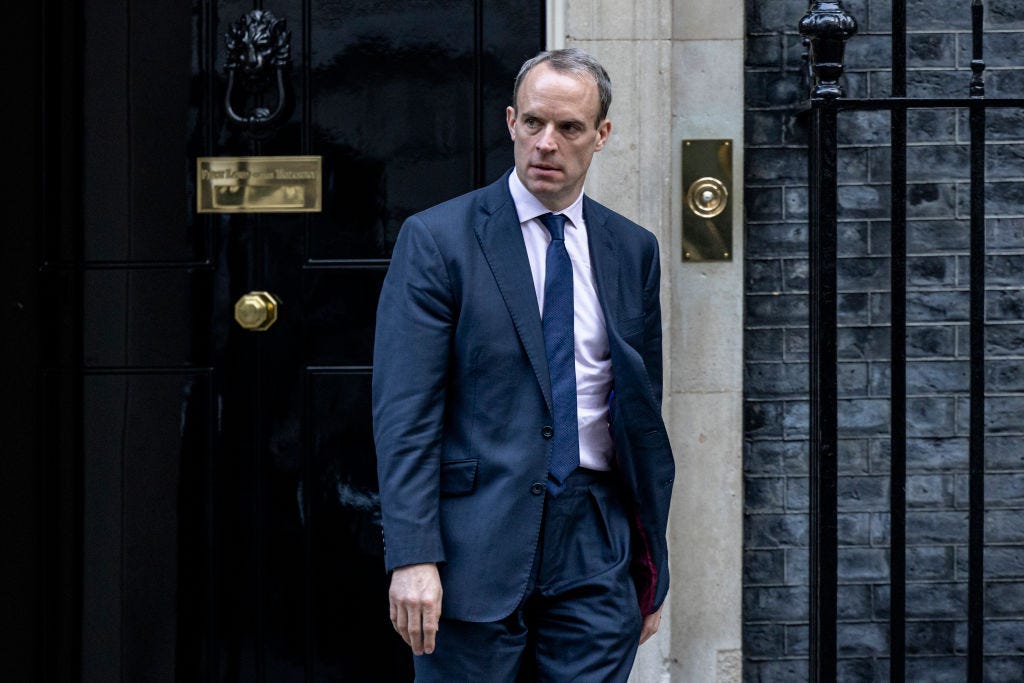Misuse of Power
The Raab report and what it tells us about Westminster
In many ways Dominic Raab’s resignation is unimportant. Deputy Prime Ministers in the British system are of variable significance, having no formal constitutional role, but he was one of the least consequential we’ve ever had. Raab’s replacement as Justice Secretary, Alex Chalk, is an upgrade, albeit one with very limited scope to change much. Politicians, as a collective, are held in such low regard by the public that being told another one has behaved badly is unlikely to change many voting preferences.
But it is worth dwelling on because of what it tells us about Westminster. The moment the investigation into Raab’s bullying was announced I tweeted that I expected many more civil servants to come forward with complaints. I’ve rarely been more confident about a prediction because, like everyone who hangs around Whitehall, I knew Raab’s reputation. His behaviour had been an open secret for years. The high turnover in his private office was a matter of record as were the higher than normal salaries offered to officials to work with him (“danger money” as more than one described it to me).
Keep reading with a 7-day free trial
Subscribe to Comment is Freed to keep reading this post and get 7 days of free access to the full post archives.


